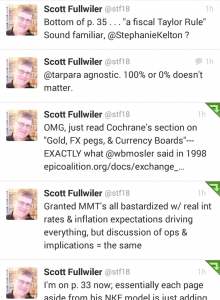The European Central Bank’s (ECB) written policy is to maintain the eurozone inflation rate at just under two percent. The ECB has consistently failed to achieve that goal. Indeed, its failure has been growing steadily. The ECB’s failure tells us something enormously important about what is wrong with the eurozone’s economy and the troika’s bleeding of that economy through austerity. The ECB’s increasing inability to even come close to its inflation target demonstrates that demand remains woefully inadequate in the Eurozone – making austerity an insanely self-destructive policy. The Wall Street Journal (WSJ) reported on the ECB’s latest failure in an article entitled “German Inflation Rate Plummets as Manufacturing Slows.”
Bank Whistleblowers United
Posts Related to BWU
Recommended Reading
Subscribe
Articles Written By
Categories
Archives
February 2026 M T W T F S S 1 2 3 4 5 6 7 8 9 10 11 12 13 14 15 16 17 18 19 20 21 22 23 24 25 26 27 28 Blogroll
- 3Spoken
- Angry Bear
- Bill Mitchell – billy blog
- Corrente
- Counterpunch: Tells the Facts, Names the Names
- Credit Writedowns
- Dollar Monopoly
- Econbrowser
- Economix
- Felix Salmon
- heteconomist.com
- interfluidity
- It's the People's Money
- Michael Hudson
- Mike Norman Economics
- Mish's Global Economic Trend Analysis
- MMT Bulgaria
- MMT In Canada
- Modern Money Mechanics
- Naked Capitalism
- Nouriel Roubini's Global EconoMonitor
- Paul Kedrosky's Infectious Greed
- Paul Krugman
- rete mmt
- The Big Picture
- The Center of the Universe
- The Future of Finance
- Un Cafelito a las Once
- Winterspeak
Resources
Useful Links
- Bureau of Economic Analysis
- Center on Budget and Policy Priorities
- Central Bank Research Hub, BIS
- Economic Indicators Calendar
- FedViews
- Financial Market Indices
- Fiscal Sustainability Teach-In
- FRASER
- How Economic Inequality Harms Societies
- International Post Keynesian Conference
- Izabella Kaminska @ FT Alphaville
- NBER Information on Recessions and Recoveries
- NBER: Economic Indicators and Releases
- Recovery.gov
- The Centre of Full Employment and Equity
- The Congressional Budget Office
- The Global Macro Edge
- USA Spending
-












